|
|
|
Editor's note
|
|
Kia ora koutou - and welcome to your latest New Zealand newsletter.
As MPs are about to cast the deciding vote today on whether to send the question of voluntary euthanasia to a public referendum next year or whether to abandon the issue, historian Catherine Abou-Nemeh at Victoria University of Wellington looks at the arguments for and against medically-assisted dying through the ages, right back to the Hippocratic oath doctors still swear today.
New Zealanders are a wasteful lot. Each of us produces five times the global daily average of waste – and we produce 35% more waste than a decade ago. Plastic waste is particularly problematic, but Trisia Farrelly, at Massey University, argues that waste-to-energy incineration technology that is often hailed as a solution would likely add to pollution and delay a necessary transition to a circular economy.
Population growth, combined with an increase in consumption, is seen as the main driver of changes in Earth systems, but as Michael Petterson, at AUT, writes in this week’s Climate Explained, discussions about climate change often skirt around the topic.
The 1881 government invasion of Parihaka, the small settlement that had come to symbolise peaceful resistance to the confiscation of Māori land, was one of the most brutal events in New Zealand’s past. Alexander Gillespie, a law expert at the University of Waikato, looks at how the colonial government wrongfully applied laws as instruments of power to crush non-violent dissent.
Please also check The Conversation’s Australian edition for updates and indepth reporting on the devastating bush fires - and you will find many more articles on all international editions. Many thanks for reading. Ka kite anō a tērā wiki.
|
Veronika Meduna
New Zealand Editor
|

|
|
Top stories
|
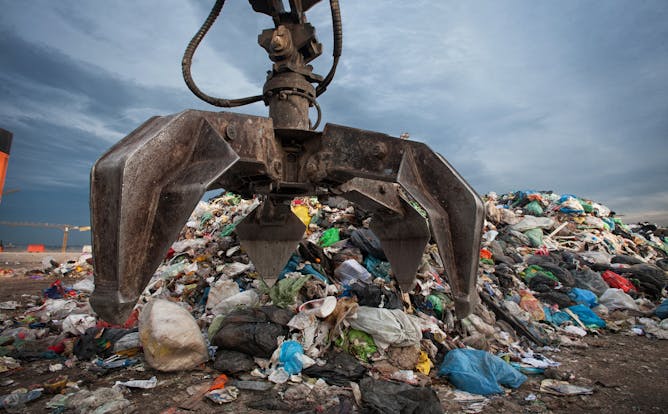
Since the Chinese plastic recycling market closed, 58% of New Zealand’s plastic waste goes to countries in South-East Asia.
from www.shutterstock.com
Trisia Farrelly, Massey University
Waste-to-energy incineration has been raised as a solution to the global plastic waste problem, but the technology adds pollution and greenhouse gas emissions and encourages more waste production.
|

Critics of assisted suicide often raise moral objections while proponents focus on the trauma of terminally ill patients. But all arguments have a long history.
from www.shutterstock.com
Catherine Abou-Nemeh, Victoria University of Wellington
The arguments in favour or against euthanasia have a long history, going back to the Hippocratic oath that doctors still swear today.
|

Rapid population growth and increased consumption are now seen as the main drivers of environmental changes.
from www.shutterstock.com
Michael Petterson, Auckland University of Technology
Discussions about climate change often skirt around the issue of population growth, but it is the main driver of rising carbon dioxide levels and many other environmental changes on a planetary scale.
|

Armed constabulary gather at Parihaka.
Wikimedia Commons
Alexander Gillespie, University of Waikato
Almost 140 years after armed government troops crushed peaceful protests at Parihaka, New Zealand is beginning to make amends with the signing of a reconciliation law and a compensation agreement.
|
From The Conversation's international editions
|
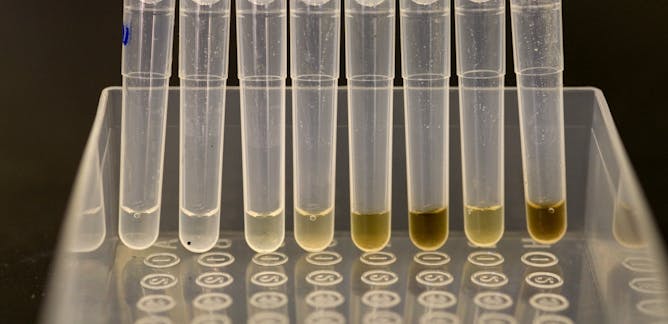
Jane Tiller, Monash University
A US judge has allowed police access to the major DNA database without users' consent (including Australian users). It's a timely reminder that we urgently need genetic privacy legislation.
| |

Ben Mathews, Queensland University of Technology
The High Court has referred Cardinal George Pell's application for special leave to appeal his convictions to the full bench of the High Court.
|
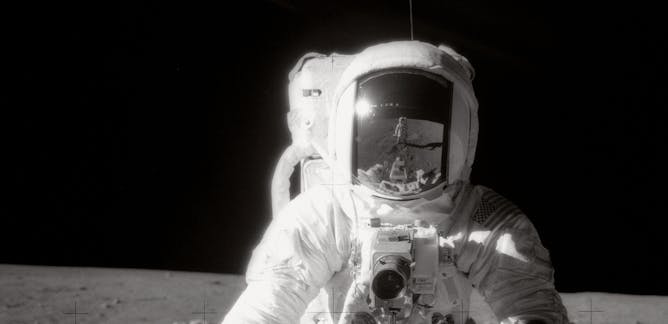
Timothy Swindle, University of Arizona
Apollo 11 tends to steal the spotlight when it comes to lunar landings. But Apollo 12 was the first mission to make a precise pinpoint landing on the Moon - and without the aid of computers or GPS.
| |
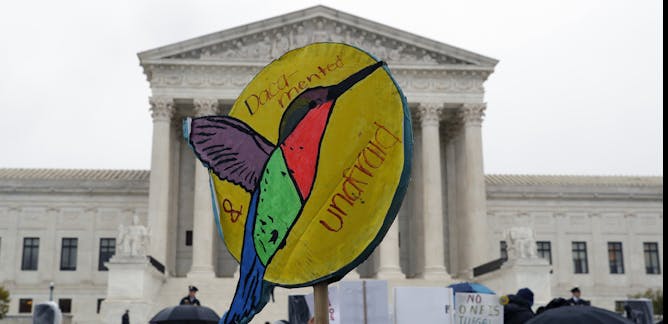
Aviva Rutkin, The Conversation
On Nov. 12, the Supreme Court heard arguments on the Trump administration's decision to end the Deferred Action for Childhood Arrivals program.
|

Hamid Foroughi, University of Portsmouth; Marianna Fotaki, Warwick Business School, University of Warwick; Yiannis Gabriel, University of Bath
From Boris Johnson to Donald Trump, a new breed of bullshitting politicians is flourishing.
| |

Daniel Cook, University of Dundee
Published in 1719, Robinson Crusoe was one of the first novels (in the modern sense) written in English. Some 300 years later, the complicated castaway and his misadventures continue to shape culture.
|
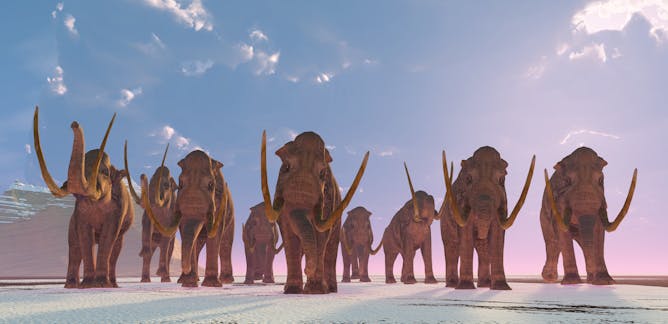
Matthew Robert Bennett, Bournemouth University
Scientists have worked out a new way to scan beneath the ground for footprints – and it's revealing traces of an ancient world.
| |

Lenin Cavalcanti Guerra, University of Saskatchewan
In the last century, several South American countries faced coups, military dictatorships and social uprisings. Despite economic improvements in recent years, the continent remains mired in unrest.
|

Gerry Wright, McMaster University
A new report estimates that by 2050, 40 per cent of all infections will be resistant to antimicrobial treatment. This will directly cause 13,700 previously preventable deaths.
| |

Kate Pincock, University of Oxford
Tanzania's government must focus on the drivers of teenage pregnancy, which are entirely overlooked in current punitive policies, instead of expelling and arresting schoolgirls.
|
|
|
| |
| |
| |
| |
| |
| |
|
|
|
|
|
|
|